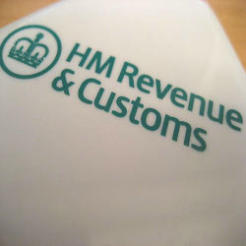Last week Cathy Wilson, policy adviser to HMRC, addressed delegates at the Charity Tax Group conference highlighting the scale of the UK’s charity fraud and tax-avoidance problem, describing it as an ‘industry’ of its own. Kate Sayer reflects.
The sad truth is that charity fraud is on the rise. Serious incidents reported to the Charity Commission almost doubled in 2010/11 and included 371 cases of theft and fraud valued at £6m. According to the National Fraud Authority’s 2011 Annual Fraud Indicator, fraud is estimated to cost the charity sector in England and Wales £1.3bn – roughly 1.7 per cent of the not-for-profit sector’s income. As many fraud cases will go undetected or unreported, the actual figures are likely to be considerably higher.
One area that is consistently exploited is gift aid. Wilson stated that HMRC pays out around £1bn of gift aid to charities each year. She admitted that it wasn’t surprising that unscrupulous people want a share of it as they see it as ‘free money’. It seems there are other tax reliefs for charities that are similarly exploited for personal gain.
As charity advisers we are shocked at the scale of tax fraud and the abuse of the charity tax reliefs that HMRC has started to tell the sector and the public about. We are shocked because we only deal with genuine charities and they are at pains to comply with all regulation. We have never seen the 'dark side' of charity tax that HMRC describes.
HMRC has extensive powers and the law is clear that charity tax reliefs are only available where the funds are applied to charitable purposes. So the question we would have for HMRC is "why do you not use your existing powers against the individuals abusing charity tax reliefs?"
There have been several high-profile cases recently that illustrate that while HMRC does go after individuals, there are flaws in the system, particularly in the area of gift aid where the rules are often exploited. A few years ago, David Baddiel, the stand-up comic and writer, and Angus Deayton, the TV presenter, both used charity tax schemes that enable users to exploit gift aid rules to write off huge income tax bills. Both admitted to using the schemes to the Sunday Times which published details of the arrangements the two used. Deayton is alleged to have qualified for a tax rebate of £144,000 on one arrangement, and was said by the paper to have repeated the process with other companies. Baddiel bought shares in the same company, qualifying for a tax rebate of £160,000.
HMRC is now pursuing the schemes vigorously, with senior figures regarding the abuse of charity reliefs as beyond the pale, and one of the worst excesses of the tax industry. The particular tax adviser in the case quoted above has been convicted of fraud, but the problem remains of a culture, among many tax advisers, that promotes tax-saving schemes at a high price to charities and society in general.
While Cathy Wilson went on to reassure delegates at the conference last week that HMRC is doing everything in its power to address fraud in this area, we are not convinced that the various measures introduced such as the rules on tainted donations or before that, substantial donors, are targeted at the right people.
We believe that it is individuals exploiting the tax system who need to be targeted, rather than charities. We support HMRC in seeking to ensure that all individuals and companies pay the correct amount of tax.
We will help charities to claim the tax reliefs to which they are entitled however, we do not help anyone to exploit loopholes or gain an unfair advantage.









